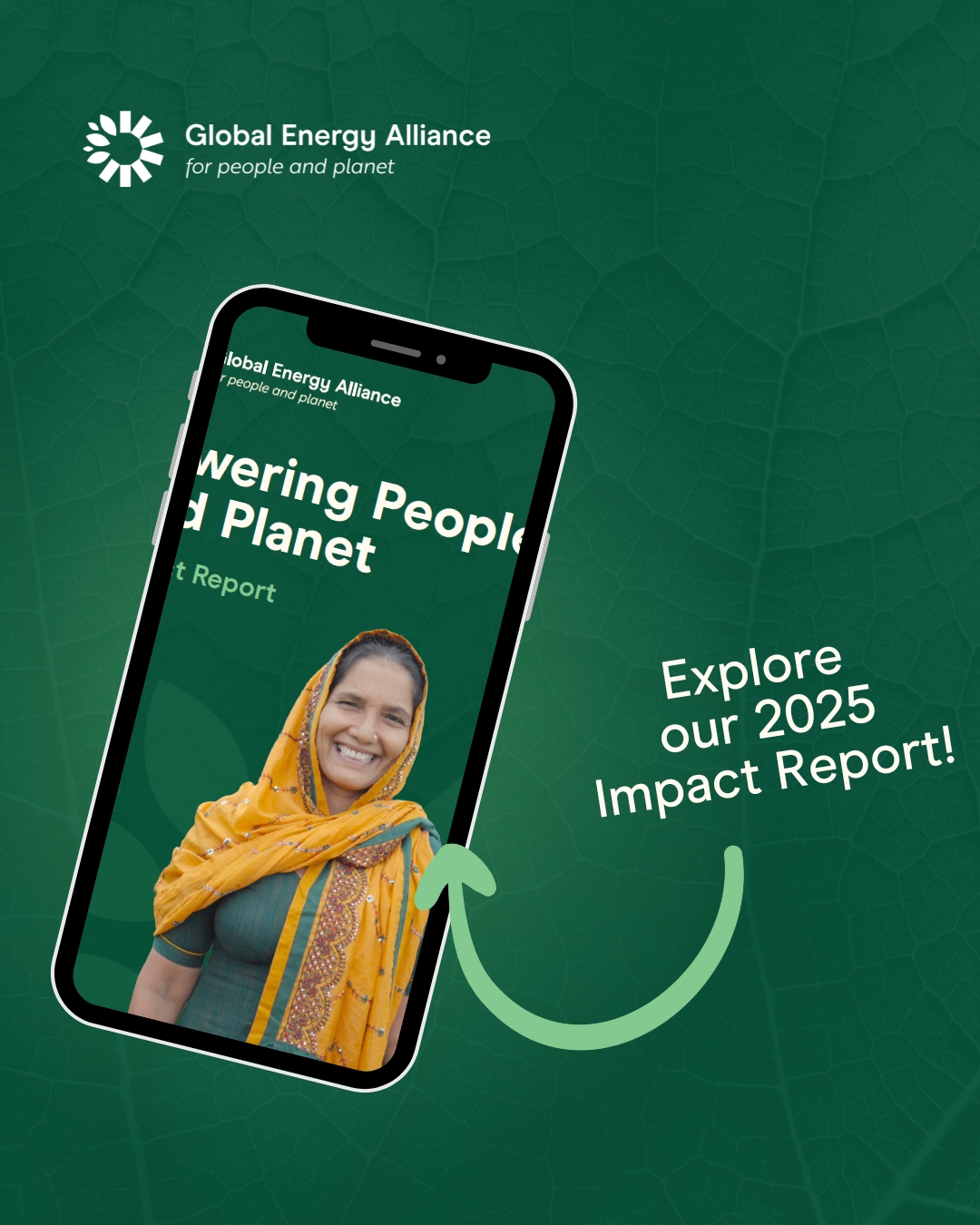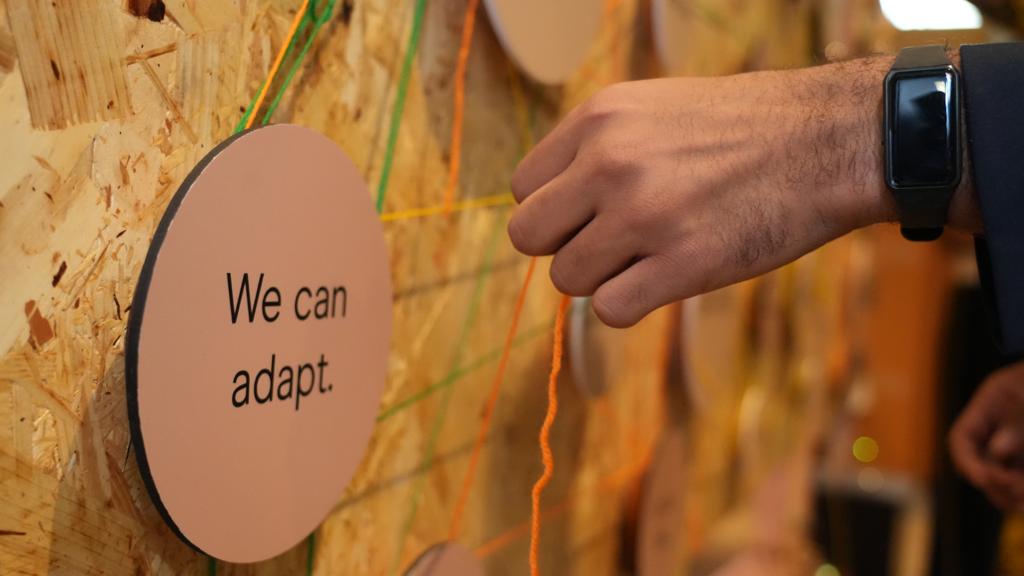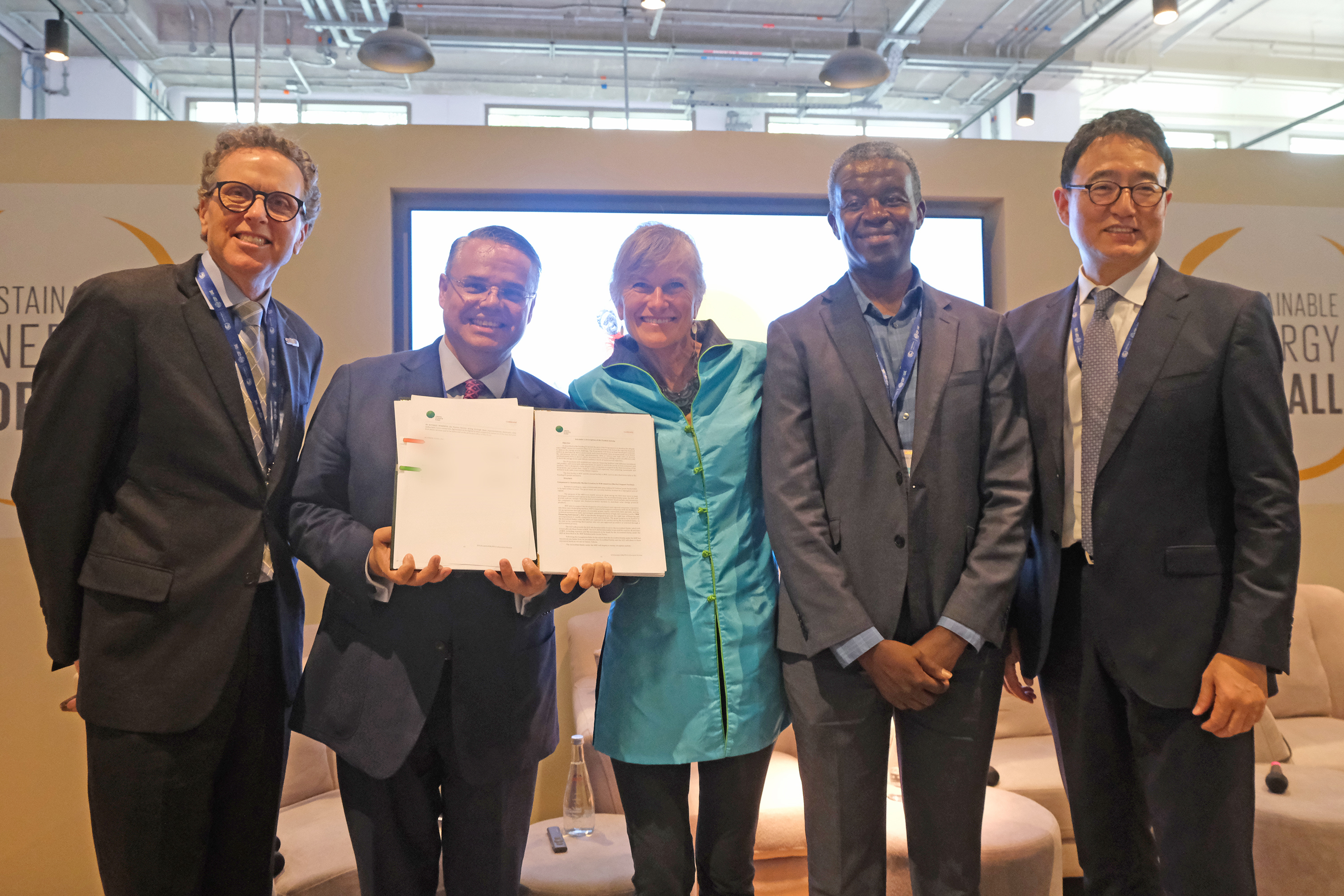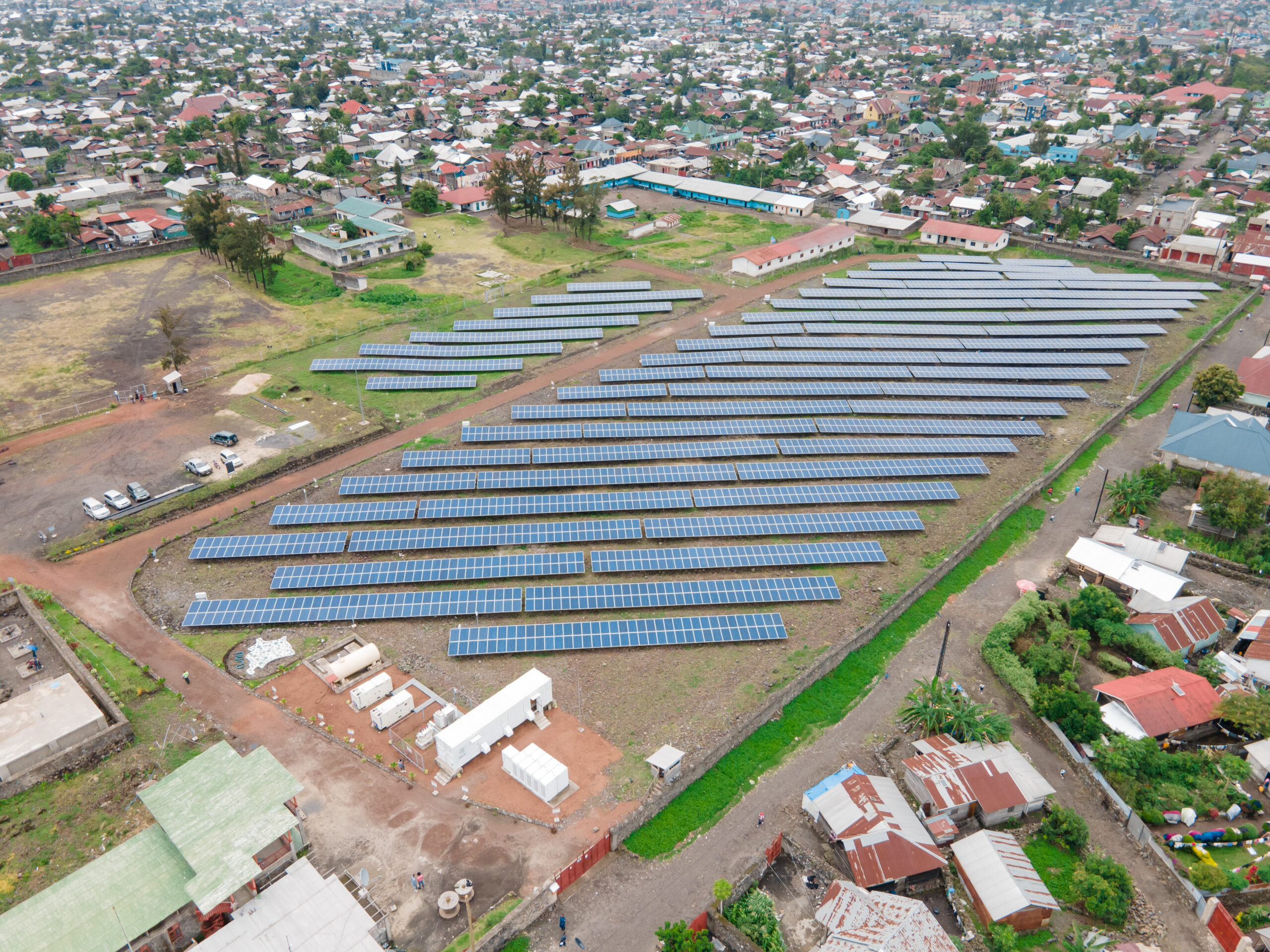Mercy Kyalo Co-Founder & CEO Feion Green Ventures

Youth changing energy in Africa: Mercy Kyalo Co-Founder & CEO Feion Green Ventures
This Q&A was part of an impact fireside chat as an outcome of the YES (Youth Energy Summit) on the Road competition in October 2024.
Q: What inspired you to address firewood dependency in institutions, especially in schools, and how did this lead to the founding of Feion Green Ventures?
A: The inspiration to address firewood dependency in schools came during a visit to Lodwar in Turkana County, where I was volunteering to tutor primary school students. During one lesson, the students had to stop studying and cross the river to collect firewood for lunch, losing hours of valuable class time. This experience highlighted the stark reality that schools, especially in rural Kenya, were not only struggling to provide adequate meals but were also contributing to environmental degradation through massive firewood use.
As I researched further, I realized that over 30,000 schools in Kenya depend on firewood, with public boarding schools alone consuming around 1 million tons of biomass fuel annually. The environmental, financial, and health impacts were staggering, yet there seemed to be no sustainable, large-scale alternative available. This discovery fueled my desire to create a viable, clean-cooking solution tailored to the unique needs of institutions. This drive eventually led to the founding of Feion Green Ventures, where we now design and produce electric pressure cookers specifically for schools, aiming to reduce firewood dependency, improve health outcomes, and create sustainable cooking solutions that promote both learning and environmental stewardship.
Q: Can you describe the environmental, health, and financial challenges that schools face due to firewood reliance, and how the Jiko-Kul EPC is designed to address them?
A: Schools that rely on firewood for cooking face significant environmental, health, and financial challenges. Environmentally, the high demand for firewood exacerbates deforestation, with Kenyan schools cutting down an estimated 1.8 million trees annually just to meet their cooking needs. This deforestation drives soil erosion, disrupts ecosystems, and worsens climate change. Financially, the cost of firewood is a major burden, with schools spending over $2,000 per year on firewood alone, often straining limited budgets that could otherwise support educational resources. Additionally, health risks are severe; prolonged exposure to smoke from open-fire cooking is linked to respiratory issues, posing a threat to kitchen staff and others working in these environments.
Q: What makes the Jiko-Kul EPC unique compared to other clean cooking solutions, especially for high-capacity, institutional use?
A: The Jiko-Kul EPC stands out because it’s specifically designed for institutional settings. Unlike conventional cookers, it offers high-capacity options (from 50L to 500L) that meet the substantial cooking needs of schools. It features variable wattage, allowing flexibility for both grid and off-grid schools, and multisided heating technology for faster, even cooking. The cooker’s durability and efficiency align with schools’ need for reliable, long-lasting equipment. It also integrates smart metering and a Digital Measurement, Reporting, and Verification (DMRV) system, enabling institutions to monitor energy consumption, track savings, and adjust cooking patterns. This innovation supports sustainable cooking at scale, making it a transformative solution for large institutions.
Q: How did GEAPP’s support help you bring this solution to market, and what impact has that funding had on your progress?
A: GEAPP’s support has been transformative for Feion Green Ventures, enabling us to accelerate R&D and bring Kenya’s first locally manufactured Electric Pressure Cooker (EPC) to market. Their funding allowed us to refine the Jiko-Kul EPC’s design, making it adaptable to both grid and off-grid power sources and responsive to the specific cooking needs of schools. Through GEAPP’s backing, we were able to address critical engineering challenges and incorporate smart metering and the Digital Measurement, Reporting, and Verification (DMRV) system, providing real-time data on energy usage and savings for our users.
Q: Could you share some early results or feedback from the pilot programs, and any measurable impacts you’ve seen so far in schools using the Jiko-Kul EPC?
A: The early results from our pilot programs with the Jiko-Kul EPC have been overwhelmingly positive, showcasing its transformative impact on both cooking efficiency and cost savings. In schools where the EPC has been deployed, we’ve observed a remarkable 75% reduction in cooking time for popular meals like githeri (a staple maize and bean dish) that traditionally require hours of preparation. This time saving not only ensures students receive timely meals, but also frees up staff for other essential activities, boosting overall school productivity.
Financially, the EPC has proven highly effective, cutting operational cooking costs by approximately 70%. For schools that utilize solar-powered systems, these savings increase even further, with the potential for near 100% cost elimination. Moreover, schools report significantly improved indoor air quality and healthier working conditions for kitchen staff due to the elimination of smoke from firewood. These measurable benefits are driving strong interest and support for our solution as a sustainable, high-capacity cooking option for institutional use.
Q: What specific environmental benefits do you hope to achieve with the Jiko-Kul EPC, such as reduced deforestation and improved air quality?
A: With the Jiko-Kul EPC, our aim is to significantly curb deforestation by reducing the need for schools to consume vast quantities of firewood. Each unit installed has the potential to save several tons of wood annually, preserving mature trees that are crucial for carbon sequestration and ecosystem balance. Additionally, the transition from wood to electric cooking directly contributes to improved air quality, both inside and outside the kitchen. Eliminating wood smoke exposure means fewer respiratory health issues among kitchen staff and students. The data gathered through our smart metering system will also help demonstrate tangible reductions in CO2 emissions, providing clear evidence of the EPC’s positive impact on the environment.
Q: What are the main challenges you foresee in scaling the Jiko-Kul EPC across Kenya, and how do you plan to overcome them?
A: Scaling the Jiko-Kul EPC across Kenya presents challenges related to infrastructure, affordability, and awareness. One of the primary hurdles is the inconsistent access to reliable power in rural areas, where many schools lack stable electricity. To address this, we’re focusing on making the Jiko-Kul EPC adaptable to various energy sources, including solar, allowing us to reach off-grid areas with renewable, reliable power.
Another significant challenge is the high upfront cost, which can be prohibitive for many institutions. To make the EPC more accessible, we’re piloting flexible financing options, such as lease-to-own and pay-as-you-go models, which lower the entry barrier and spread costs over time. This approach enables schools to adopt the technology gradually, ultimately achieving significant savings that will cover the initial investment.
Lastly, building awareness around the benefits of electric cooking and overcoming cultural biases toward firewood is essential. Through strategic partnerships with the Ministry of Education and community workshops, we’re committed to demonstrating the long-term benefits of clean cooking to schools, parents, and local stakeholders, creating champions for sustainable cooking solutions at the grassroots level.
Q: How do you envision Feion Green Ventures’ growth over the next few years, and what impact do you hope to make in Kenya and beyond?
A: In the coming years, we envision Feion Green Ventures becoming a leading force in sustainable, large-scale high-tier clean cooking solutions across Kenya and East Africa. Our goal is to install the Jiko-Kul EPC in over 500 institutions, particularly schools, where the need for clean, efficient cooking solutions is urgent. By expanding our reach, we aim to reduce the demand for firewood, mitigate deforestation, and significantly cut carbon emissions from traditional cooking practices.
Beyond Kenya, we see potential in adapting our technology to meet the needs of other regions facing similar environmental and energy challenges. Through partnerships and scaling efforts, we intend to drive widespread adoption of electric pressure cooking, setting a standard for high-capacity clean cooking solutions. Our vision includes not only transforming institutional cooking practices but also inspiring policies and programs that support sustainable energy use in education and community institutions, ultimately fostering a cleaner, healthier, and more equitable environment across Africa
Q: What has been your proudest moment in this journey so far?
A: My proudest moments have come from seeing Feion Green Ventures recognized on both national and global stages, affirming the importance of our mission. The release of our Jiko-Kul EPC—a product that addresses a critical gap in institutional clean cooking—was a major milestone. Recognition by impactful organizations like GEAPP, the Youth4Climate Awards, and the RES4Africa Foundation has reinforced our purpose and given us the resources to keep pushing forward. Each acknowledgment not only highlights the innovation behind our work but also brings us closer to transforming cooking practices in schools and institutions across Kenya and beyond. These moments remind me of the potential we have to make a lasting difference and fuel our commitment to deliver even greater impact.
Q: What advice would you give to other entrepreneurs looking to address environmental or health challenges in their communities?
A: My advice to entrepreneurs tackling environmental or health challenges is to focus on understanding the core needs and unique dynamics of your community. Start by deeply engaging with the people you aim to serve; listen to their experiences, and allow their insights to shape your solution. Building a strong network of like-minded partners can amplify your impact—collaborating with NGOs, government bodies, or international organizations can help you access resources and expertise that accelerate progress.
Be patient and resilient; addressing systemic challenges often requires overcoming significant barriers. Measure your impact carefully and transparently. This not only builds trust with the community but also validates the effectiveness of your solution, which is crucial for scaling. Finally, let your passion for the cause guide you—when challenges arise, remembering why you started will keep you moving forward.



